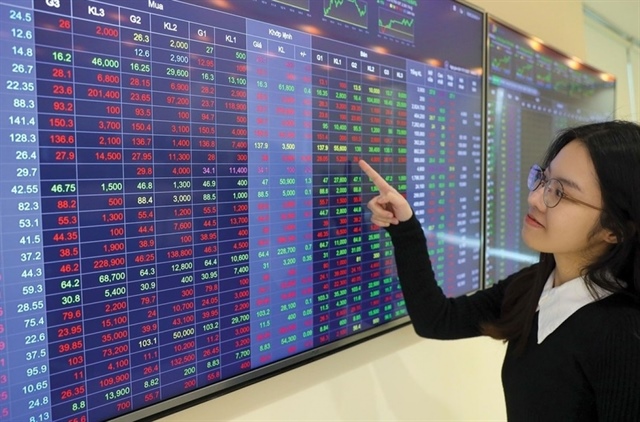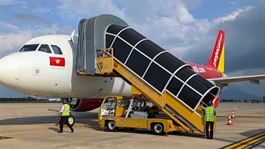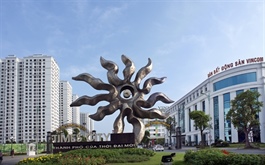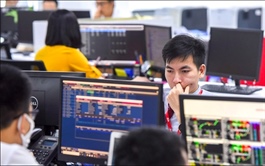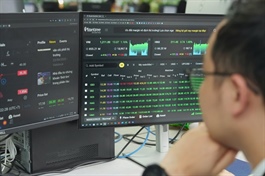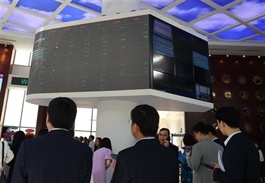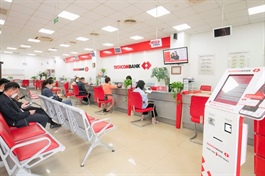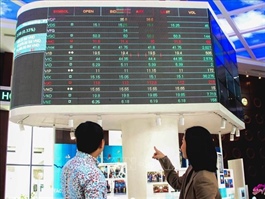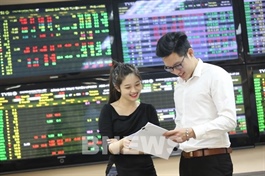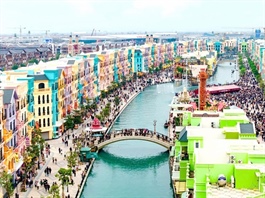Vietnam after FTSE upgrade: a shift in both quantity and quality of foreign capital
Vietnam after FTSE upgrade: a shift in both quantity and quality of foreign capital
FTSE Russell's decision to upgrade Vietnam from frontier to secondary emerging market status has spurred optimism in the stock market. Le Hoai An, founder of Integrated Financial Solutions JSC, spoke with VIR's Van Dung about the impact of the milestone.

Le Hoai An, founder of Integrated Financial Solutions JSC |
Many investors see Vietnam’s upgrade by FTSE Russell as a gateway to billions of dollars in new foreign inflows. What is your assessment of its real impact?
The reclassification is not just a labelling exercise; it signals a structural shift in how global investors view Vietnam. In the short term, the move places Vietnam on the radar of a wide range of passive funds tracking FTSE Emerging indexes. However, the more profound impact lies in the long-term transformation of the market’s investor base and the enhanced quality of foreign capital.
Historically, Vietnam has been dominated by flexible, short-term frontier funds that can enter and exit quickly. The upgrade will invite participation from large-scale institutional investors such as pension funds, insurance funds, and ESG-oriented active funds. These investors are typically long-term, disciplined, and subject to strict governance frameworks.
Estimates suggest that passive capital inflows could reach several billion dollars, spread across different phases before and after the effective date. More importantly, the upgrade will deepen liquidity, strengthen market depth, and lower the cost of capital – helping the stock market evolve into a genuine channel for medium- and long-term funding for the economy.
You often mention a “qualitative change” in market behaviour. How will this shift manifest once institutional investors become more dominant?
As institutional investors increase their market share, trading behaviour will become more systematic and less sentiment-driven. Investment decisions will increasingly follow quantitative risk management frameworks and periodic rebalancing schedules rather than emotional market reactions.
This shift will reduce volatility, enhance liquidity stability, and promote a more orderly market structure. In essence, the market will move closer to one that values fundamentals over speculation.
Equally important, the upgrade will elevate corporate governance and transparency standards. Global institutional investors demand greater disclosure, consistent environmental, social, and governance (ESG) reporting, and adherence to best practices. Vietnamese companies will need to adapt by strengthening internal governance systems and ensuring consistent, data-driven communication with investors. Over time, this will enhance the credibility and institutional quality of Vietnam’s financial system.
In recent years, foreign investors have been net sellers due to currency pressure and macro uncertainty. Will the upgrade be enough to reverse this trend?
Short-term outflows are understandable amid currency volatility and global monetary tightening. However, it is crucial to distinguish between tactical capital, which is sensitive to short-term factors, and structural capital, which follows long-term allocation mandates.
The FTSE upgrade primarily affects the latter. Once Vietnam becomes part of the emerging market basket, funds are required to maintain their exposure proportionally, creating a more stable and enduring flow of capital that is less affected by temporary macro conditions.
Beyond the direct inflows, the upgrade also strengthens investor confidence at a macro level. When Vietnam is perceived as a credible emerging market with improving transparency, its ability to raise capital internationally – through both sovereign and corporate channels – will improve significantly. Borrowing costs may decline, and the country’s overall financial resilience will increase. This is the deeper and more sustainable benefit of the reclassification.
From a domestic perspective, what should Vietnamese enterprises and investors do to capture this opportunity?
The key lies in improving the capacity to absorb capital. If domestic companies are not well-prepared, new inflows could remain confined to secondary market trading rather than being channelled into productive investment.
Enterprises should focus on improving transparency, ensuring consistent financial performance, and aligning with global ESG reporting standards. A clear dividend policy, prudent leverage management, and strategic long-term planning will be crucial in attracting stable institutional capital.
At the system level, Vietnam should accelerate structural reforms such as enhancing custodial processes, enabling controlled short-selling, and expanding foreign ownership limits. These steps are essential to ensure efficient and secure participation of global capital.
For retail investors, the post-upgrade period will mark the end of speculative trading based on short-term news. The market will enter a phase of stronger differentiation based on corporate quality. Sectors such as banking, consumer goods, and infrastructure – those with higher weights in the FTSE Emerging Vietnam Index – are likely to benefit the most.
How long do you think it will take for Vietnam to reach full Emerging Market status under MSCI standards?
The FTSE reclassification is a meaningful intermediate step, but achieving MSCI Emerging Market status will require more time and deeper reforms. Vietnam still needs to address three core issues: liberalisation of foreign exchange transactions, higher foreign ownership limits, and consistent legal enforcement across market participants.
Nonetheless, the FTSE upgrade builds confidence in Vietnam’s reform trajectory. It signals to global investors that Vietnam is moving in the right direction. The challenge now is not only to attract capital but to retain it. That will depend on maintaining transparency, macroeconomic stability, and investor trust. In other words, the reclassification marks the beginning of a new era of integration – where market quality, not just size, determines long-term success.
The FTSE Russell upgrade is more than a symbolic milestone; it represents a shift from quantitative expansion to qualitative maturity. As the structure and behaviour of foreign capital evolve, Vietnam’s financial market stands at the threshold of becoming a true regional investment hub. Sustained progress will depend on whether the market can translate this recognition into improved governance, efficiency, and investor confidence.
- 11:03 15/10/2025





